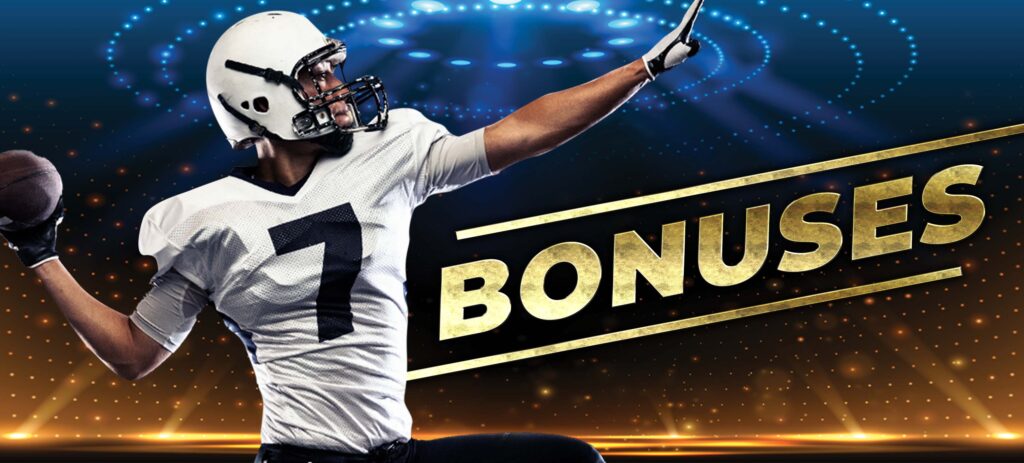The Psychology of Gamblers: Online Gambling Tips and Tricks

The psychology of gambling is a complex subject that involves various cognitive, emotional, social, and behavioral factors. Understanding the psychology of gamblers helps casino and sportsbook operators sell their products to potential customers. It also helps gamblers to understand their own mentality when playing for real money, which helps them guard against mistakes.
“Know thyself,” was the first maxim of the Temple of Apollo in Ancient Greece. It is still good advice, especially when money is on the line. With that in mind, let us take a look at the psychology of gambling. Let’s start with a look at the different types of gamblers.
The Types of Gamblers
A few broad types of recreational gamblers exist. As you read through the list below, try to determine which type you are. These are a bit like Enneagram types, where you might exhibit traits of two of more types. If so, one tends to dominate your thinking when playing at a land-based casino or online sportsbook.
- Risk-Takers & Thrill Seekers: These gamblers seek an adrenaline rush. You might call them adrenaline junkies. Gambling is about the thrill of the hunt, putting it all on the line with one deal of the card, one spin of the wheel, or one throw of the dice. Often, these bettors are high rollers, though they don’t have to be.
- The Would-Be Winning Gambler: Some gamblers seek the excitement of winning. This might seem like the previous type, but the winning gambler seeks out the best return-to-player (RTP), the lowest house edge, and strategy tips on how to win casino games or sports bets. It’s a studious form of a gambler, a person who analyzes the game and seeks a winning mentality.
- Social Gamblers: This is the definition of a casual gambler. They might go to the casino as a part of the group, going along for the social aspect. They would just as soon go watch a movie or a concert but conform to their social group’s wishes. Or they might be a lone gambler who gambles to chat with the dealers and other players, bet on the shooter at craps, or match wits with other card players at the poker table. Gambling is an excuse to meet and get to know people.
- Escapist Gamblers: Many people deal with stress and burnout in their job or everyday lives. Some of these people go to the casino to escape the cares and concerns of everyday life. For them, sitting in front of a slot machine takes their mind away. Playing blackjack optimally is a relief from whatever stress they might face. Winning at poker or cheering for their sports bet takes their mind off their troubles. In online gambling, escapist gamblers play in the privacy of their own home, where a quick gaming session helps them dream of another place for a while.
- Those Who Seek Entertainment: A lot of gamblers view a casino trip as pure entertainment. They know the house edge means they will lose some cash, but they see it as the cost of entertainment. For them, gambling losses are like buying a ticket to a concert or sporting event. It is better, though, because sometimes you get a rebate or come home with a windfall. Whatever the case, gamblers who want entertainment treat their bankroll like it is a part of the entertainment budget or discretionary cash.
- Problem Gamblers: This gambler is the opposite of the previous type. They might gamble to get ahead, or they might take their escapism to extremes. In most ways, gambling is more like an addiction. They get an endorphin rush from gambling with an aspect similar to alcoholism or drug addiction. In fact, studies show that gambling addiction is most like shopping addiction. It is gambling out of control, often with financial, psychological, and personal fallout. The DSM-5 has 9 criteria that help spot a problem gambler, and those who fit more than 5 criteria are pathological gamblers. It’s a bad place to be.
Those are the most common motivations for gamblers. Obviously, other types exist but they are rarer. For instance, a professional poker player views high-stakes poker as a career. They make most or all their income from poker because these people are exceptionally skilled at playing cards. Like problem gambling, pro gamblers are not our focus here today. Know they exist, but know they are rare. For now, we’re talking about recreational gamblers.
How Gambling Operators Use the Psychology of Gambling
What we should not forget is the marketing techniques gambling operators use, because they know the psychology of gambling. Casino owners and sports betting companies use reinforcement and rewards to keep players returning to them. Gambling activates the brain’s reward system, releasing dopamine, a neurotransmitter associated with pleasure and motivation. The anticipation of winning and the intermittent reinforcement schedule (occasional big wins among smaller losses) can make gambling highly reinforcing, leading to repeated participation.
Gaming organizers employ mutually-reinforcing strategies to engage and entice gamblers, leveraging the brain’s reward system, the anticipation of winning, and the mechanics of the intermittent reinforcement schedule. These techniques are designed to create a highly stimulating and addictive gambling experience. Here is how these factors are utilized in their marketing efforts:
- Brain’s Reward System: The brain’s reward system is activated by pleasurable experiences and the anticipation of rewards. Gambling triggers this system by providing intermittent rewards and releasing dopamine, a neurotransmitter associated with pleasure and motivation. Casinos and sportsbooks capitalize on this by creating an environment that maximizes the excitement and pleasure derived from gambling activities.
- Anticipation of Winning: The possibility of winning a substantial amount of money creates a powerful anticipation effect. Casinos and sportsbooks emphasize the potential for big wins through advertising campaigns, showcasing jackpot winners, and offering attractive prizes. This anticipation triggers positive emotions and motivates individuals to engage in gambling activities.
- Intermittent Reinforcement Schedule: The intermittent reinforcement schedule is a key psychological concept in gambling. It involves providing rewards on an unpredictable basis, which can lead to addictive behavior. Slot machines, for example, use this schedule by offering occasional wins among many losses, keeping players engaged and hopeful. This uncertainty of reward creates a strong motivation to continue gambling, as individuals believe that the next win is just around the corner.
How Casinos Create the Mood to Gamble
- Atmosphere and Sensory Stimulation: Casinos create an immersive environment with vibrant lights, sounds, and glamorous settings. This sensory stimulation heightens the excitement and triggers the brain’s reward system, enhancing the overall gambling experience.
- Rewards and Bonuses: Casinos and sportsbooks offer various incentives to attract and retain gamblers. These include sign-up bonuses, free spins, cashback offers, loyalty programs, and VIP rewards. By providing additional value and rewards, they enhance the anticipation of winning and encourage continued gambling.
- Personalization and Targeted Promotions: Casinos and sportsbooks collect extensive data on their customers, enabling them to tailor their marketing efforts. They send personalized offers, recommendations, and promotions based on individual gambling preferences, playing history, and demographics. This targeted approach increases the chances of engagement and conversion.
- Social Influence and Peer Pressure: Casinos often use social proof to encourage gambling. They highlight the presence of other enthusiastic gamblers, showcase big winners, and create an impression of popularity and success. This social influence can sway individuals to participate, as they perceive gambling as a socially desirable and rewarding activity.
- Online and Mobile Accessibility: With the rise of online gambling and mobile betting platforms, the accessibility and convenience of gambling have increased significantly. Casinos and sportsbooks use targeted online advertisements, mobile apps, and social media campaigns to reach a wider audience, making it easier for individuals to engage in gambling activities anytime, anywhere.
- Responsible Gaming: It is important to recognize that while these marketing techniques may enhance the gambling experience for some, they can also lead to addictive behaviors and financial losses for vulnerable individuals. Responsible gambling practices, regulations, and support resources are crucial to ensure the well-being of individuals who engage in gambling activities.
Know Thyself: Practice “Nothing Too Much” When Gambling
Nothing about how gambling operators market to players is wrong, and it should not be surprising to readers. Everywhere we go, companies are trying to sell us something with their marketing campaigns. We can choose to listen or tune out, and we can choose whether ad campaigns and subtle tactics have their effect. Know thyself, but also follow the second maxim of the Temple of Apollo: “Nothing Too Much.”
- Cognitive Biases: Gamblers often display cognitive biases that influence their decision-making. One common bias is the “illusion of control,” where individuals believe they have more control over the outcome of a game of chance than they actually do. The “gambler’s fallacy” is another bias, where individuals believe that past outcomes influence future probabilities (e.g., if a coin has landed on heads five times in a row, they may believe that tails are due to come up next).
- Personality Factors: Different personality traits are associated with gambling behavior. Some individuals are more prone to take risks and seek excitement (sensation-seekers), while others may be motivated by the need to escape or cope with negative emotions (escape gamblers).
- Compulsive Gamblers: Impulsivity, a lack of self-control, and a tendency to seek immediate gratification are also linked to gambling problems. Know whether you have a tendency towards gambling compulsions. If you do, take steps to limit the influence of outside factors. Whether through helplines, hotlines, or self-exclusion, get help if you experience problem gambling.
In other words, gamble in moderation. Use casino money management techniques to set win goals and loss limits. Shorten gambling sessions by stopping when you are tired, thirsty, hungry, need a restroom break, or simply heated because you just lost a big bet. Also, pay attention to the factors below while you gamble online or in land-based venues.










